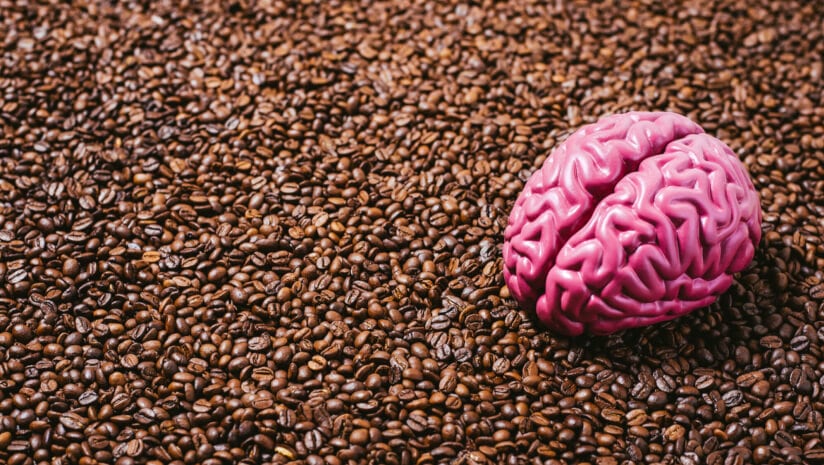According to a paper published in the Journal of Psychopharmacology, research on caffeine and cognitive performance remains controversial, and this in part could be due to the CYP1A2, AHR and ADORA2A genes.
“As nutrigenetics science has advanced, some of the variability in study results has been attributed to common genetic variations, specifically single nucleotide polymorphisms (SNPs), which are associated with caffeine metabolism and response,” wrote researchers from the Faculty of Sport, Allied Health and Performance Science at St Mary’s University Twickenham in London.
“Research suggests that variants in the Adenosine Receptor A2a (ADORA2A) gene may influence an individual’s response to caffeine, leading to caffeine-induced anxiety and insomnia. Moreover, variants in the Cytochrome P450 1A2 (CYP1A2) and Aryl Hydrocarbon Receptor (AHR) genes are associated with variability in caffeine metabolism.”
To explore domain-specific associations, they evaluated caffeine’s effects on social cognition, memory, attention and executive function in 117 healthy, mostly Caucasian adults between the ages of 23 and 64.
Caffeine and cognition
Caffeine is the most widely consumed psychoactive substance and among the most promising cognitive function enhancers, the researchers noted, with previous studies determining different effects across different domains of cognition.
“Acute caffeine intake is shown to enhance simple cognitive functions such as attention and reaction time, but less consistent effects are observed for complex functions such as decision making,” they wrote. “There are also data showing a positive relationship between habitual caffeine consumption with memory and executive function, but there is limited evidence for an association with simple cognitive functions.”
The study attributed inconsistencies in the research to date to variable cognitive assessment methods, participant selection (habitual consumers vs caffeine-naïve individuals), differences in the form, dosage and mode of caffeine intake (with or without sugar) and potential misclassification of habitual caffeine consumption.
In addition, it highlighted that genetic studies in this area have not considered the wider set of genetic variants associated with factors affecting cognitive performance like sleep—among a host of other intrapersonal and contextual influences that occur in real-life rather than in one-time assessment settings.
Gene x caffeine
For this genetics study, genotyping analysis assessed AHR rs6968554, CYP1A2 rs2472297, ADORA2A rs5751876, ADA rs73598374 and APOE rs429358 and rs7412.
Participants were grouped into ‘fast’ and ‘slow’ metabolizers using two SNPs (CYP1A2 rs2472297 and AHR rs6968554) linked to caffeine plasma metabolites. The ADORA2A SNP, previously associated with caffeine-induced anxiety, was used to identify individuals as caffeine ‘sensitive’ and ‘non-sensitive’.
Participants completed a lifestyle and food frequency questionnaire and were grouped into low (0–50 mg/day), moderate (51–300 mg/day) and high (>300 mg/day) habitual caffeine consumers. They also completed a battery of tests across the key domains of cognitive function.
“Significant gene × caffeine interactions were observed for the domains of social cognition and executive function,” the researchers reported. “‘Slow’ metabolizers had a higher performance in social cognition [emotion recognition] compared with ‘fast’ metabolizers among high-caffeine consumers, while ‘fast’ metabolizers had a higher performance in executive function compared with ‘slow’ metabolizers among moderate caffeine consumers.”
The study also replicated findings that ‘fast’ metabolizers consume significantly more caffeine than ‘slow metabolizers’—likely to achieve psychostimulant effects and with different caffeine-cognition associations due to more profound withdrawal symptoms.
The researchers suggested that variations in levels of brain caffeine and primary caffeine metabolite paraxanthine may explain differences in mental fatigue and engagement and that there may be a dose-specific association between caffeine and executive function.
“Moderate doses may provide cognitive benefits for ‘fast’ metabolizers without the negative effects of withdrawal, anxiety, restlessness or sleep disturbance,” they wrote. “In contrast, it is possible that in ‘slow’ metabolizers, the steady-state plasma/brain caffeine concentration may have been sufficient to discourage caffeine intake, yet not enough to improve executive function.”
To confirm how habitual caffeine may influence cognitive function based on individual genotype, the study called for further research in naturalistic settings using larger cohorts.
‘One size does not fit all’
Commenting on the study, Ahmed El-Sohemy, nutrigenomics expert and professor at the University of Toronto, said that as with all studies, it has its strengths and limitations.
“The main strength of this study is the incorporation of genetics to study the effects of caffeine, in this case on various measures of cognition,” he said. “This is really important because we know that individuals can respond to caffeine very differently from one another and when it comes to making any kind of recommendation, one-size-does-not-fit-all.”
Professor El-Sohemy is also founder and chief science officer of Nutrigenomix Inc., a biotechnology company that provides genetic testing kits to healthcare professionals, allowing them to analyze a patient’s DNA and offer personalized nutrition plans based on their genetic makeup.
Other study strengths noted included the “selection of a few good candidate genes to explore potential genetic modifiers of caffeine” and accounting for other factors that affect caffeine metabolism like certain medications and hormones.
“One limitation, however, is that they did not include one of the most well-established genetic marker [CYP1A2 rs762551] affecting caffeine metabolism,” Professor El-Sohemy added. “Perhaps that could be a goal of their future work.”
Source: Journal of Psychopharmacology, doi: 10.1177/02698811241303601, “Habitual caffeine intake, genetics and cognitive performance”, Authors: Angeliki Kapellou et al.



